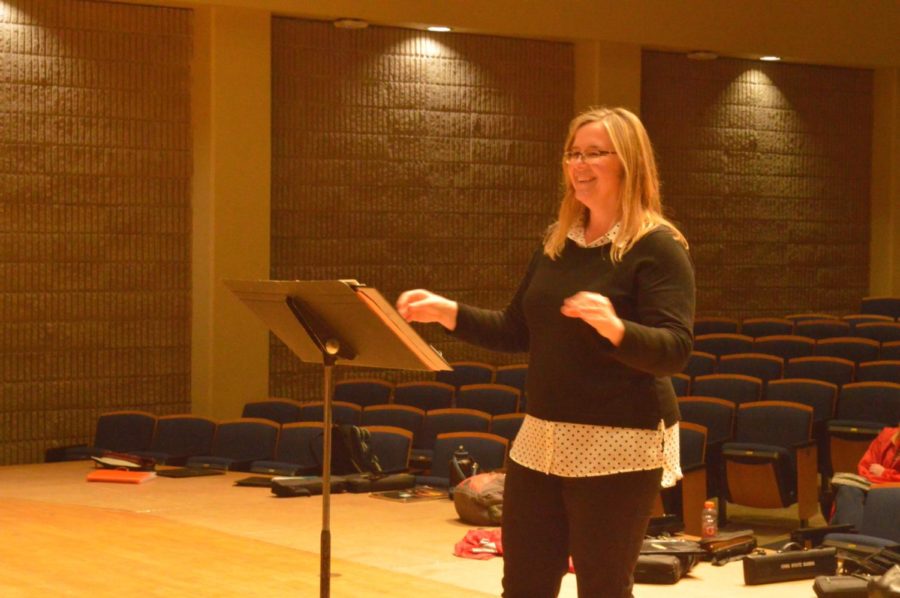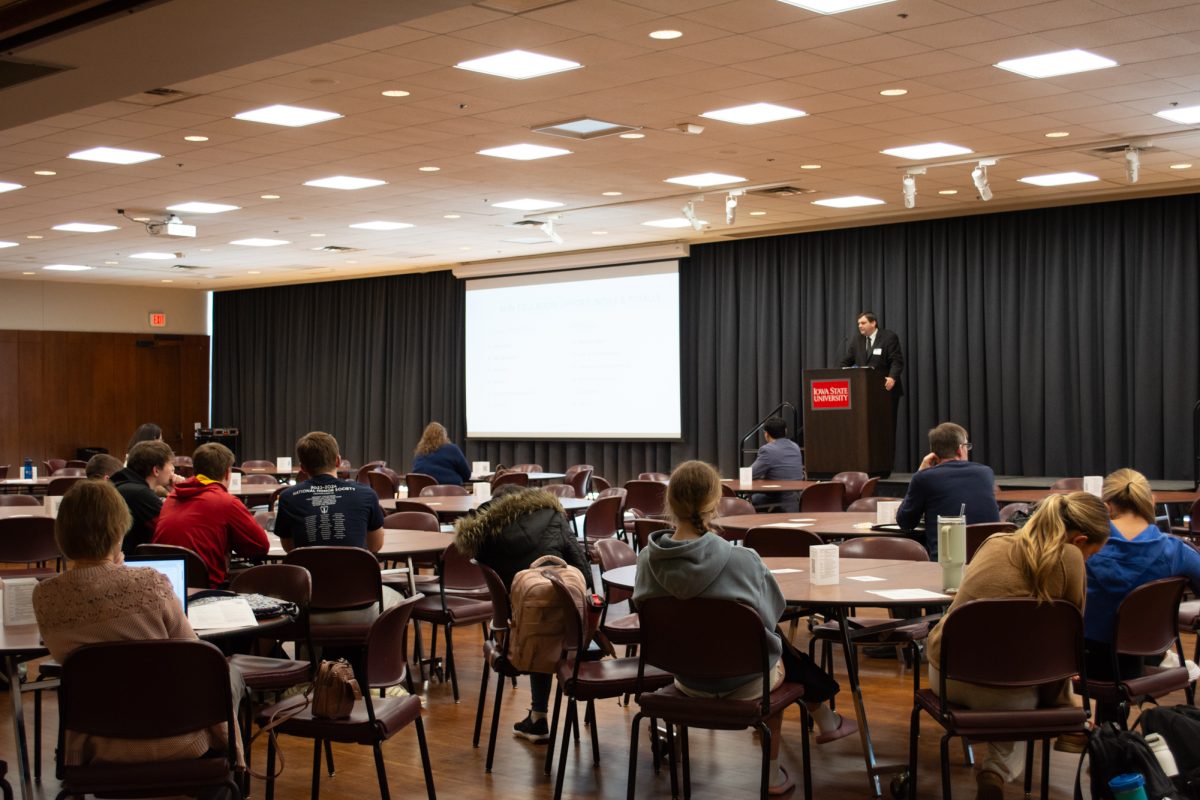Getting to know the ‘Flute Mom’ of Iowa State
April 18, 2019
The “Flute Mom” of Iowa State’s Department of Music and Theater is by no means a nine to five professor. Sonja Giles, an associate professor of flute, makes the most out of her day and sets high standards for her students to be performers and adults.
To supercharge the rest of her day, coffee begins the morning routine, followed by meditation and exercise, if time allows. Now that her two sons are in higher education, Giles said she no longer has to hear complaints about mom practicing at 7 a.m.
After arriving at Music Hall, Giles’ day is a whirlwind of lessons and an aural theory class. Then she is off to symphony rehearsal, either in Cedar Rapids, Iowa City or — more frequently this season — Des Moines. Earlier in Giles’ career, being away from home and family was a difficult balance. She recalled times where she frequently returned home between 10 p.m. and midnight.
“The last year I did that, I killed two deer in one season,” Giles said. “It was my first time to call 911 and the car was totally smushed.”
Performing with the Des Moines Symphony gives Giles the opportunity to drive home in safer conditions for a shorter period of time.
Breaking down the average day, Giles spends her time working with both ensembles of music majors and individual students to meet their appropriate needs.
In aural theory class, students often come in knowing how to notate rhythms, but they may be uncomfortable singing melodies in front of their peers, and vice versa. Giles said she enjoys meeting contrasting needs of individual students and seeing growth from original areas of weakness. The same is true in a one-on-one environment. Additionally, she is a co-director for the music learning community on campus and a faculty adviser for Sigma Alpha Iota.
Primarily, Giles is the director of all flute activities, specifically giving respective devotion to students for an hour each week in the form of a lesson.
Giles tells her students to block out two hours each day on their own time to practice, even if they may be tempted to study for their music history or an English final. If they instead study and don’t get home until 11 p.m., it is highly unlikely that they will actually practice. In the student’s mind, the studying must be done, while the practicing has the potential to get pushed off to the side.
“So, for music majors, it can be easy for them to rely on their talent,” Giles said.
Because each student has different needs and learning styles, Giles said she adjusts to be the type of teacher each musician needs. Sometimes, it’s a case of matching a “type A” or procrastinating personality with a figure that matches at their level. Giles explained the three types of teachers she has noticed in her time as an educator: the friend, the matchmaker and the dictator. The last one, after meeting a teacher with that particular style, is not on her main format.
“This is what I’m trying to go after: be a different kind of teacher with each student, so that I’m trying to figure out what they really need and what will help them best,” Giles said. “Do I need to be stern? Do I need to lay down the law? Do I need to be understanding because I know this is a crazy week for them?”
This is where her role of “Mother” has come into play.
“I do kind of feel like a momma hen sometimes, just because they might need still that,” Giles said.
Students may need someone to remind them to be safe while out at their first football game and need to “use the buddy system.” The rule still holds true: for many students, this is there first time away from what is comfortable and common.
“I tell them ー Get your butt up, do laundry and actually go to class,” Giles said, fully embodying the mother attitude. “If you’re going out, make sure you come back with whoever you went out with. Don’t leave someone somewhere.”
In her life before teaching at Iowa State, Giles said she never thought being a tenured professor would be her career path. Though she loved everything related to music in high school, she thought of herself as a free spirit, unsure of her calling and chose the flute since she enjoyed it so much.
Her mother, a pianist and teacher, had an impact on her view of music. Her father, on the other hand, wanted Giles to get a grasp on reality.
“My dad said, ‘Go apply to colleges,’ and I was like, ‘whatever … maybe I’ll go to Europe for a year … ’” Giles said. “And my dad said, ‘No, go to school.’”
This led on to her undergraduate degree from the University of Alabama, where she would receive a full-ride scholarship in flute performance and met her teacher Sheryl Cohen, who would encourage her to try everything. She obtained a master’s degree at the University of Mexico and University of Iowa, and her doctorate at the University of Minnesota.
After coming to Iowa State in 2008, Giles was honored with the Award for Early Excellence in Teaching at Iowa State as well as the Cassling Early Excellence in Teaching Award. Giles said she was astonished when she received both while having only a few years of experience.
Giles said the greatest moments of teaching are seeing students accomplish their worst fears and greatest setbacks. Giles loves the “light bulb” moment in her learners, but stage fright is a whole other battle as a performer.
“Once someone who has worked and worked on something, and has performance anxiety, and suddenly they go out there and look so comfortable, those are my happiest moments,” Giles said.







